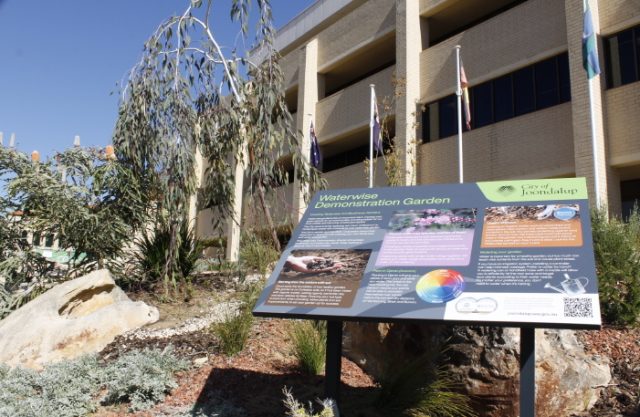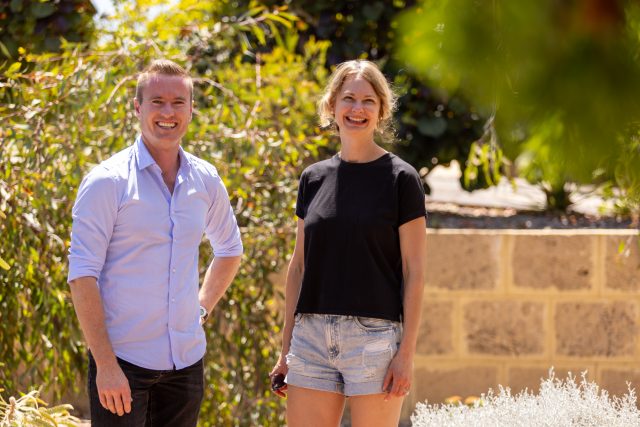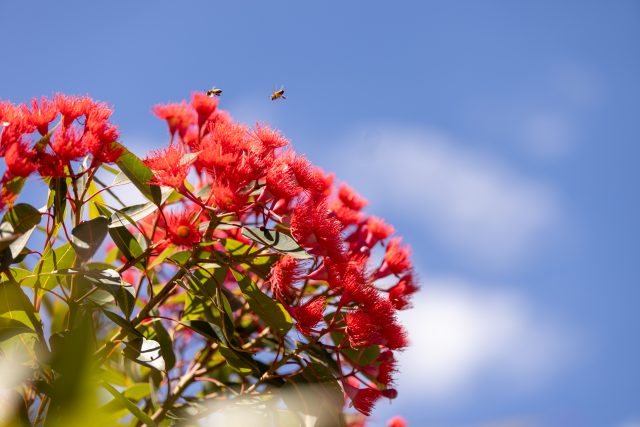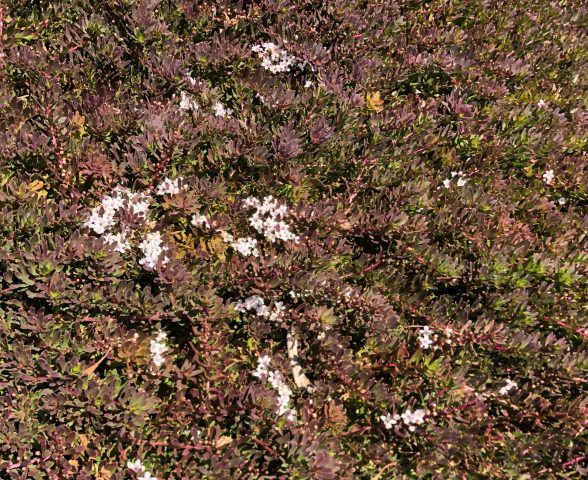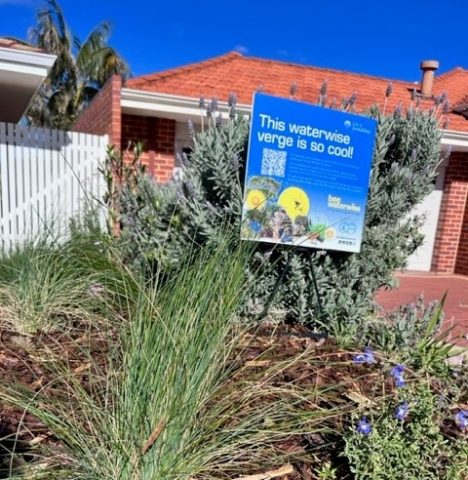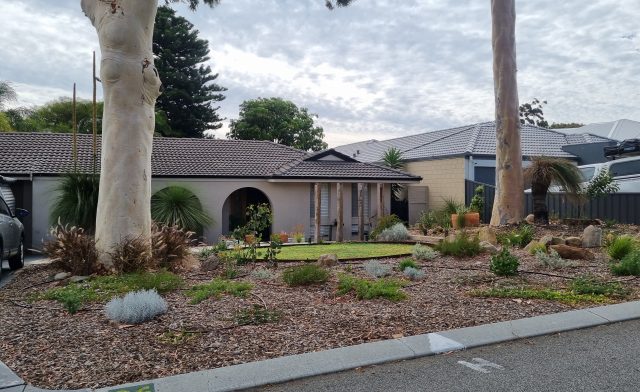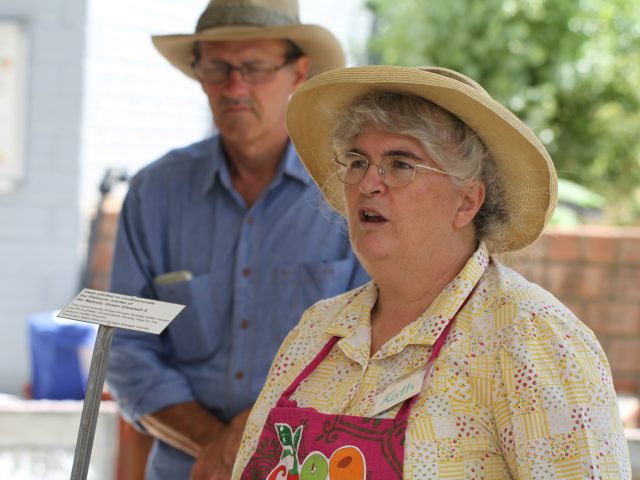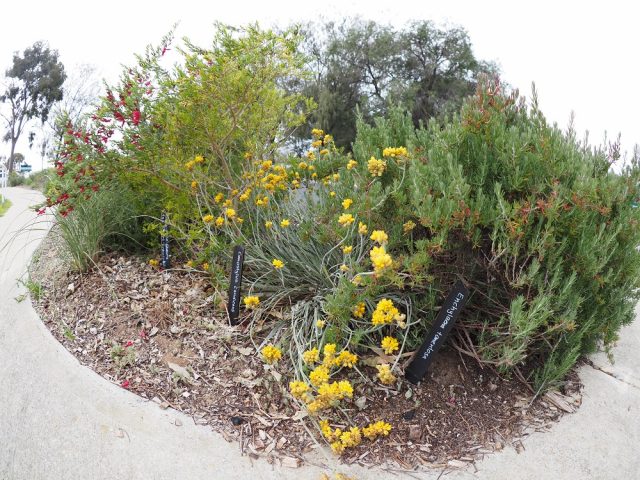Environmental degradation and climate change are two of the largest environmental issues facing our planet, and our younger generations will be the most affected by the challenges they bring.
Creating a more sustainable world now and for future generations depends on education, awareness and being readily available to take action. Poseidon Primary School is achieving this for its students, teachers, and parents through many great initiatives, such as its participation in Murdoch University’s Miyawaki Forest Program.

Miyawaki Forests
Miyawaki forests are small, densely planted forests comprised of endemic plant species. These forests encourage biodiversity, maturing rapidly to provide habitat more quickly than using traditional methods. These forests also help reduce urban temperatures, improve mental and physical well-being, and help to mitigate the impacts of climate change.
The ‘Miyawaki Method’ was developed in the 1970s by Japanese botanist Professor Akira Miyawaki as a method to help reforest degraded and industrial landscapes. An adaptation of the method involves densely planting endemic species (determined through a species survey of local forests/bushland) in a small area, usually the size of a tennis court. A typical Miyawaki forest has approximately three to five plants per square metre, with around 30 or more endemic species. Due to this planting method, Miyawaki forests can grow into mature ecosystems in just 20 years, up to ten times faster than using traditional reforestation methods.
After the first two to three years, most Miyawaki forests require no maintenance and can provide up to 18 times greater biodiversity than using traditional planting methods.
Poseidon Primary School’s Pocket Forest
Poseidon Primary School was invited to participate in the Miyawaki Forest Outreach Program developed and led by Dr Grey Coupland from the Harry Butler Institute at Murdoch University, who receives funding for forest planting activities from Carbon Positive Australia. The scientific and educational outreach program is funded by the Harry Butler Institute, Murdoch University. The program is recognised as one of UNESCO ‘Green Citizens’ programs outreach programs for 2022 and was a finalist in the Australian Museum’s Eureka Awards for “Innovation in Citizen Science.”
The program offers a practical, hands-on learning experience where children can plant and monitor their own forest as it matures. Students also investigate the local wildlife that enjoy the forest area. Dr Coupland runs formal lessons on topics including urban sustainability and rewilding as part of the program, which complements the school curriculum.
Poseidon Primary School’s pocket forest was planted by students in August 2022. The forest covers an area of 100m2 and contains 300 plants from 31 locally native species. Species such as Tar Bush (Eremophila glabra) and Red and Green Kangaroo Paw (Anigozanthos manglesii), among others, were densely planted to grow fast with little maintenance required.
Coupland designed the forest to include access for the children and a central yarning circle where students and teachers can use the forest as an outdoor classroom.


From turf to biodiverse: Poseidon Primary School’s Miyawaki forest transformed a turfed area into a beautiful biodiverse forest consisting of over 300 locally native plants.
The biodiverse forest has attracted lots of different fauna species, such as native bees, lizards and birds. The forest is only 18 months old and has already shown rapid growth and is thriving in the small space.
Eddystone Primary School and South Padbury Primary School are also involved in the Miyawaki Forest Program with their established and thriving pocket forests, while Ocean Reef Primary School’s pocket forest is scheduled for planting in 2024. There is also a Miyawaki forest planted in partnership with Statewide Services (Department of Education) in Padbury, and it forms part of the Statewide Services Bush Classroom program linked to their Two Way initiative.
Growing environmental knowledge
Not only does the school’s Miyawaki forest benefit the environment and wildlife, but it also acts as an educational resource for students to learn about environmental science both inside and outside the classroom.
The first step for students getting involved in the program was setting up a compost system. Students learned to reduce their food waste by composting their recess and lunch scraps, and they also received green waste and organic waste from local businesses. The turf was then removed and the soil at the forest site was improved by digging in the student’s compost, along with coconut coir and a special compost tea created by Dr Coupland added to the soil’s surface.

Year 4-6 students from Poseidon Primary School helped with the planting of over 31 locally native species in the Miyawaki Forest.
Students from Year 4 to Year 6 planted the forest under the guidance of Dr Coupland and the Murdoch University Miyawaki Forest team. Once planting was completed, the forest was covered with a thick layer of mulch to protect the soil, retain moisture and save water.
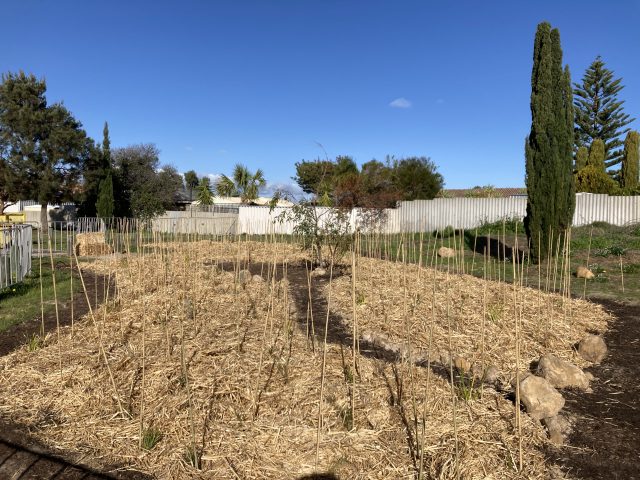
Miyawaki forests mature up to 10 times faster than traditional planting methods. The Poseidon Primary School Miyawaki forest was planted in August 2022.
Whilst preparing and planting the forest provided a beneficial educational experience, the Miyawaki Forest also provides an ongoing educational experience for students. Each month, students work with Murdoch University team to monitor their forest. Students learn to record data on aspects including plant survival and, growth and biodiversity.
The students have learned about the urban heat island effect caused by existing hardstand surfaces and how to measure surface and air temperatures to track the cooling effect of their forest. They learned how to use scientific equipment and how to write scientific reports about their findings. They also learned about weed species and weed management, frequently helping to weed their forest to ensure it can continue to grow strong.
Benefits of nature-based learning
The Miyawaki Forest program at Poseidon Primary School provides so many benefits to students’ wellbeing, learning, and overall school experience. The students enjoy being outdoors and working in their ‘outdoor classroom,’ and they have become more engaged with environmental science activities and have a genuine curiosity and interest in the forest. Their knowledge of local native animals has improved significantly during the program, as has their ability to collect and record data. Students often visit the forest during their break times, and some also meet there before and after school. For many students, the forest is a relaxing and calming safe space.
Students’ focus, attention, and academic performance have likely improved as well. Access to nature and a view of trees has proven to increase literacy and numeracy results, alongside improving student’s stress levels, concentration, and intrinsic motivation. Tree cover is strongly linked to student’s academic performance and classroom engagement across all subjects.
The Miyawaki Forest program not only provides students with a unique, hands-on learning environment, but also bring so many cognitive development benefits for a holistic learning experience for all students at the school.
Teaching sustainable living
In addition to the Miyawaki Forest and the composting system, Poseidon Primary School incorporate teachings about the environment and sustainability into their curriculum in many ways.
“Sustainable practice has been alive and growing at Poseidon Primary School. What started many years ago as one teacher’s passion, has now grown into numerous environmental projects and initiatives that complement our student’s learning,” explains Associate Principal, Erin Ibister.
The school has a Sustainability Team which overlooks the students’ Worm Farm. ‘Worm wizz’ and worm castings are used around the school’s gardens and sold to the local community. The school also has chickens, and their eggs are sold to the community to recoup feeding costs. Year 6 students run a recycling containers program, where students place their recyclable containers into specially labelled bins at the end of recess and lunch.
The dedicated Sustainability Team are also keen gardeners who plant new trees and shrubs a few times a year, donated by local politicians and businesses in the community.

Poseidon Primary School students with, from left to right, Melissa Guy (Poseidon Primary School Principal), Emily Hamilton (MLA for Joondalup), Louise Tarrier (CEO of Carbon Positive Australia and Dr Grey Coupland (Harry Butler Institute at Murdoch University).
These great initiatives from our schools teach students the importance of living waste-free and sustainable lifestyles to protect our precious environment and prepare them for climate change.
Further reading and resources:
- Learn about Pocket Forests WA – Pocket Forests, Urban Restoration.
- Find local native plants suitable for your soil type on the City’s website – Growing local native plants.
- Application for a free street tree for your verge Street tree planting – City of Joondalup.
- Learn about how you can ReWild your garden Bring Nature Home • ReWild Perth.
- Learn how to create a waterwise verge garden.
- Get free mulch from the City using mulch vouchers or from Mulchnet. We recommend only using eucalyptus prunings from Mulchnet due to Polyphagous shot-hole borer risk with non-native mulch.
Subscribe to the City of Joondalup’s Sustainability eNewsletter to stay updated about environmental news, stories, and events.



